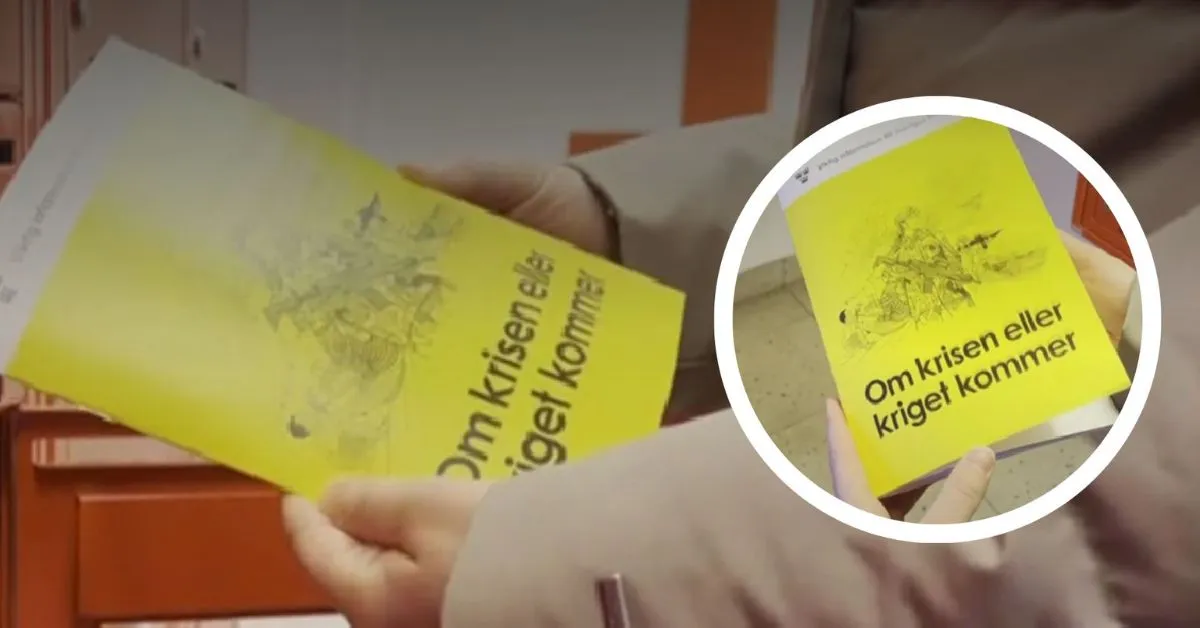
The Swedish authorities began sending 5.2 million households an updated guide to how to act in case of crisis
or a war conflict, while the rest of the Nordic countries have sent similar recommendations in recent months and the Baltic States have updated their own civil defense and security guides.
Sweden had already gone ahead in 2018 by republishing and updating the popular guide “If the war comes” (Si llega la guerra)a pamphlet first sent out in 1943 and which had not been published in three decades.
Read also: Russia-Ukraine War, live: this is what is known about the new Russian hypersonic missile
The initiative, which included adding the word “crisis” to the title, was then justified by the worsening of security in Europe and the immediate environment, alluding to the growing tensions with Russia.
The Swedish Civil Contingencies Agency (MSB), an organization dependent on the Ministry of Defence, has now updated the guide, focusing more on aspects such as warning alarms for the population and how to protect oneself on the internet and against misinformation.
Recommendations for war
The Swedish authorities They recommend storing long-lasting food, water, medicines and other utensils in their homes for at least a week.
The new version also affects other aspects, how to stay calm in emergency situations, how to discuss the issue with children, how to stop bleeding or tips for pets.
“The security policy situation is serious and we all need to strengthen our resilience to face different crises and, ultimately, war.“, declared the general director of the MSB, Mikael Frisell.
From today, MSB starts sending out the new version of “If the crisis or the war comes”. The brochure will reach all households in Sweden. 5.2 million copies are being sent and the mailing is going on for two weeks: https://t.co/K8CqbOoa6G pic.twitter.com/8EqsNioUcE
— MSB – The authority for social security and preparedness (@MSBse) November 18, 2024
Nordic countries join the initiative
A similar online guide was also published that week by the Finnish authorities, titled “Preparedness for emergencies and crises“and prepared by around twenty official institutions and NGOs.
The brochure is part of the strategy launched by the Finnish Government in 2022 to improve the country’s resilience in the face of events of great social impact following the Russian invasion of Ukraine.
These events include prolonged water and electricity outages, telecommunications disruptions, extreme weather events, serious accidents, and longer-term crises such as a pandemic or military conflict.
In addition to instructions, the guide contains information on hybrid and informational influence activities and explains how to maintain one’s ability to act during crises and how to help others.
Denmark and Norway have also sent similar guides to their citizens’ homes or online portals, alluding to the increased threat and risk of extreme weather events in recent times.
In the case of Norway, the generic recommendations were updated at the end of October, advising citizens stock up on basic products for at least a week, instead of three days, as was the previous advice.
At the beginning of September, the Danish Government sent a digital brochure called “Prepared for crises”, with recommendations for its citizens to stock up on essential products for three days.
Advice from the Danish authorities includes have a minimum of three liters of water per person per day, non-perishable food, first aid kit, hygiene products and iodine tablets.
Also read: Sweden will pay migrants who return to their countries of origin up to $35,000
Source: https://www.noticiascaracol.com/mundo/millones-de-hogares-suecos-reciben-manual-para-saber-como-actuar-en-caso-de-guerra-cb20


